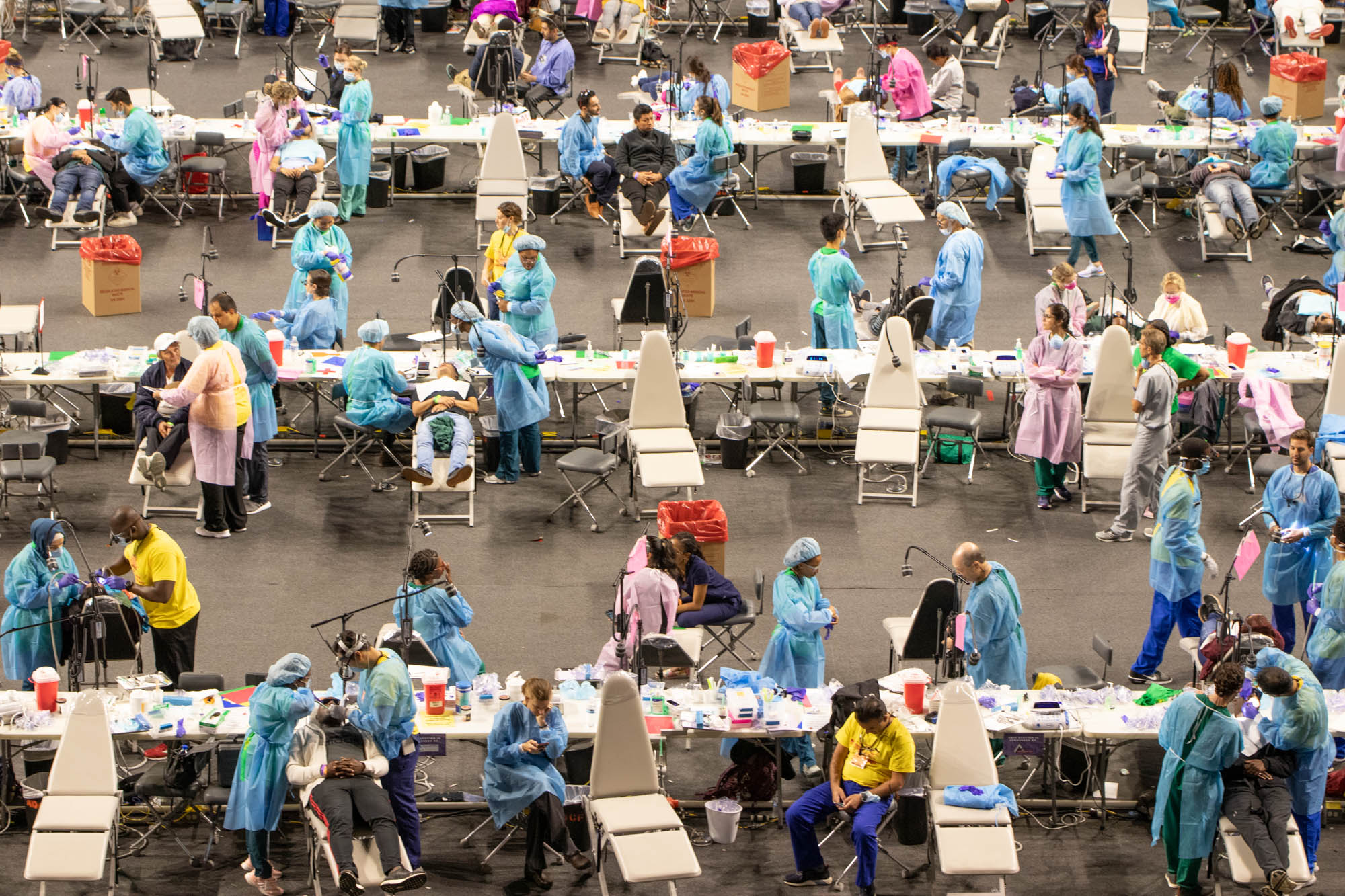Views expressed in opinion columns are the author’s own.
Low-income Americans pay the ultimate price when it comes to health care. This must change.
A few years ago, I was upstairs doing homework in my bedroom when my mother collapsed on the kitchen floor. A Type I diabetic, her blood sugar was too high and, having momentarily forgotten to monitor it, she didn’t realize it had risen until she lost consciousness.
The price of insulin alone is 10 times higher in the United States than in any other developed country. If my mother didn’t have insulin, hyperglycemia, or blood sugar levels that are too high, it could be deadly. But she also needs to know when to take insulin, which means she needs an insulin pump, disposable test strips and a blood sugar meter. To actually take the insulin, she either needs syringes, pens or an insulin pump, none of which are cheap. She also needs glucose tablets for when she is hypoglycemic, or when her blood sugar levels are too low, in case she needs to consume sugar but is unable to swallow.
With the United States spending more money on health care than other high-income countries yet ranking last in terms of health care services provided, it’s clear something needs to change. Health care’s priority should be providing life-saving medication to people who need it without paying thousands of dollars a month for it. In the case of insulin, there is no compelling reason that prices need to be so high. And in this aimless money-grab, companies are causing the needless deaths of Americans.
According to Dr. S. Vincent Rajkumar of the Mayo Clinic, pharmaceutical companies generally provide two explanations for the high price of insulin: First, developmental and innovative costs are high, and second, insulin prices are a direct result of the free market.
Development and innovation costs hardly for a drug that has been around for over 100 years, Rajkumar said, with the latest and most common product used today currently being 20 years old. Innovation, Rajkumar argues, is far less important than making sure people who need insulin to survive can afford it, especially with a recent rise in deaths due to insulin rationing.
And this “free market” pharmaceutical companies cite isn’t free at all. The participants in the market for insulin are not willing; if they choose not to purchase insulin, they die. And the price increase of insulin isn’t mirroring inflation — instead, it’s been rising over the past twenty years without explanation. And it’s not just the cost of insulin that’s been rising.
Because of these high costs, low-income Americans are impacted the most. In 2014, income inequality increased by 1.5 points because low-income Americans spent a larger proportion of their income on health care than wealthier Americans. Additionally, seven million Americans who made more than 150 percent of the poverty line dropped below the poverty line when medical expenses were taken into account. The excessive costs of insulin and health care are not just an inconvenience — for some, they are a death sentence.
There are many chilling stories out there about those who can’t afford health care and who end up dying. Susan Finley, who lost her job and subsequently her health insurance, was found dead in her apartment three months later. In an interview with The Guardian, her son said she didn’t go to a doctor because of cost barriers. Anamaria Markle, diagnosed with cancer and facing the cost of an insurance premium on top of bills for surgeries, chemotherapy and various treatments, decided to stop receiving medical care when the debt became too much to handle and died at age 52.
President Joe Biden’s administration is working on a ban on “surprise” medical bills to take effect in January, which would protect patients from facing huge bills following a medical emergency, even if the clinician who treated them was out-of-network. An out-of-network clinician doesn’t agree to a patient’s health insurance plan provider, which designates specific rates for their services. The new ban would force service providers to take it up with the insurer themselves during a 30-day negotiation period, and to go to an independent arbitrator if that doesn’t work.
However, this doesn’t lower the mountainous costs of medical drugs, treatments and insurance premiums, which are still burdensome even if they don’t come as a surprise. To really make health care equitable, we should implement a single payer form of health insurance, which cuts the price of health care in half in nations such as Canada. While this switch is unpopular with some, the benefit is immeasurable — the benefit is that all, regardless of income or job status, can live.
The issue of health care is an infuriating one, because substantial parts of the problem have viable solutions, though they have yet to be implemented — and this delay costs the lives of Americans across the country. I’m sure no one disagrees with the fact that all Americans deserve to live, regardless of income. It’s time to make that a reality.
Rebecca Scherr is a sophomore English and government and politics major. She can be reached at rsscherr101@gmail.com.



